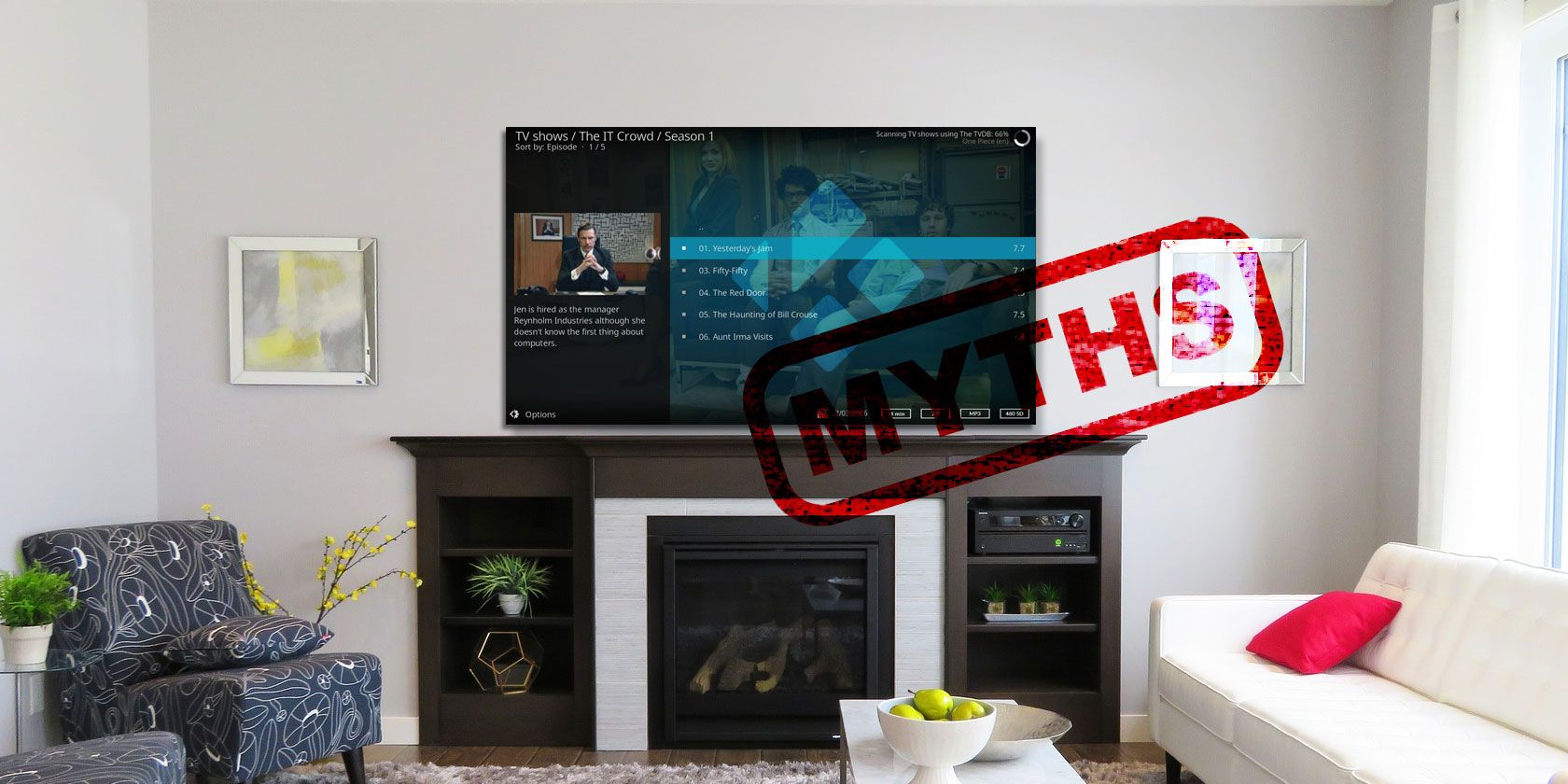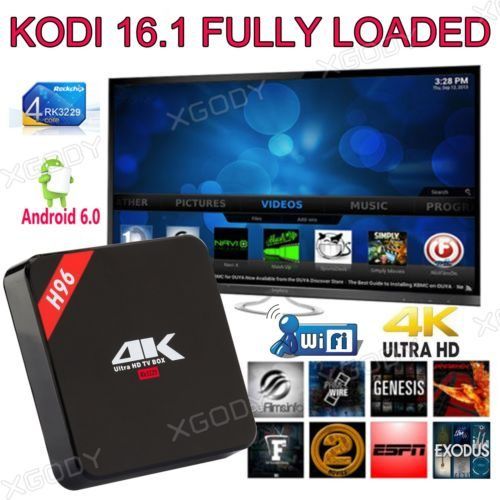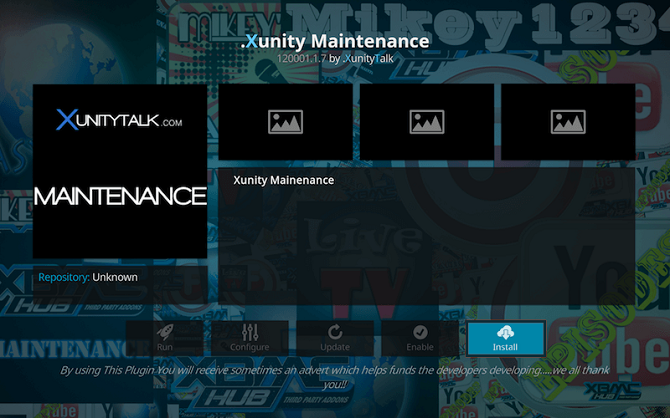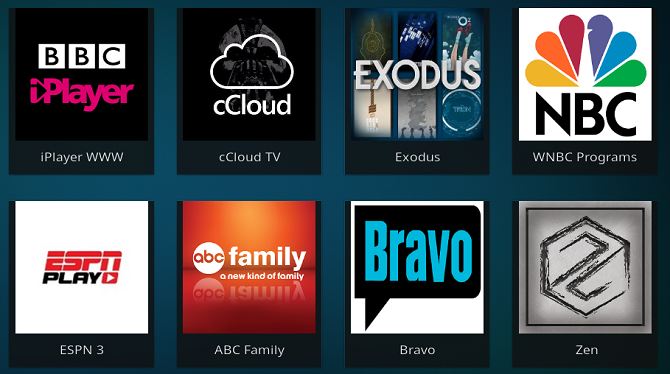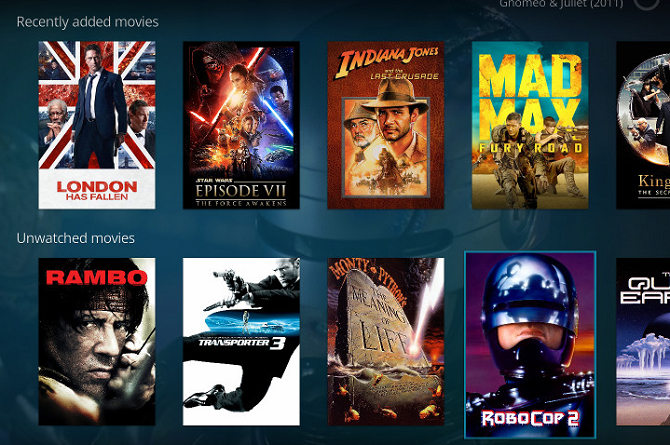Kodi has exploded in popularity recently. Some of the increased interest is as result of its undeniably fantastic features, but some derives from negative media coverage surrounding the illegal "fully loaded" Kodi boxes.
As the the software has grown in popularity, so too have the number of lies, myths, and pieces of misinformation. A quick look at the Kodi Facebook page or forums reveals the developers are constantly battling complaints from uninformed and misinformed users.
If you're just beginning your Kodi journey, read this article. It'll ensure your expectations are aligned with the reality of the situation, so you won't be left disappointed when something doesn't work as expected.
Here are seven of the biggest myths about Kodi, debunked.
1. Kodi Boxes Are Illegal
Kodi boxes are a minefield of misinformation. They've been in the news almost non-stop of late as an increasing number of countries pursue the sellers of fully loaded boxes in the courts.
And therein lies the crux of the matter: only fully-loaded Kodi boxes are potentially illegal. Fully-loaded boxes typically promise free access to the latest TV series and Hollywood films, pay-per-view sports events, and a vast library of back-dated on-demand video content -- all for a one-time fee.
Clearly, it's too good to be true. Bottom line: making, selling, and using fully-loaded boxes is illegal in many countries.
A regular Kodi box offers nothing illegal. It's an empty shell, waiting for you to populate it with your own content. There's nothing illegal about buying or using one.
2. Users Cannot Be Prosecuted for Pirated Material
If you've bought a fully-loaded box, or you've populated an empty Kodi box with illegal content, you could find yourself in trouble with the law. Although the courts have focused on the providers of the content thus far, users are now in the crosshairs as well.
Here's what Kieron Sharp, hief executive of the Federation Against Copyright Theft (FACT), told the U.K.'s Independent newspaper in June 2017:
"There's the manufacture and importation of [illegal] devices, and then the distribution and selling of those. We're also looking at the people who are providing the apps and add-ons. We'll also be looking at the end user. The reason for end users to come into this is that they are committing criminal offenses."
Don't say we didn't warn you.
3. Clearing the Cache Improves Performance
Let's move away from the legality of Kodi and instead look at the software itself.
One of the most oft-repeated tropes about poor Kodi performance is that clearing the cache will magically improve performance and reduce buffering. It doesn't. This myth originates from the early days of Kodi, when computers were not as powerful.
Back then, an average machine might not have had more than 256 MB of RAM. Even a high-end computer wouldn't have offered much more than 512 MB. As a result, Kodi cached data to your hard drive instead. It was called the "zero cache" method.
Today, technology has moved on. If you head to the shops, you'll struggle to find a machine with less than 4 GB of RAM. Even most smartphones have at least 2 GB. As a result, Kodi's caching methods have changed. Now, it caches directly to RAM by default.
Due to the nature of RAM, you never need to empty the cache. Your computer will do it automatically. Save yourself time and give cache management add-ons a wide berth.
4. Unofficial Add-Ons Can Replace Cable TV
Kodi and its official repository are a fantastic tool for anyone who's looking to cut the cord.
For those who don't know, the official repository is a Kodi-approved list of reliable, legal, maintained add-ons. Kodi monitors the repository religiously to uphold quality standards. Within it, you'll find add-ons for BBC iPlayer, SoundCloud, Plex, PlayStation Vue, Bravo, ABC Family, and more.
Away from the official repository, you can find masses of unofficial repos. While some add-ons within them are functional, useful, and legal, the repos are also the home of all the illegal content we mentioned earlier.
Because developers aren't getting paid for their work, and most of them are creating add-ons as a hobby, the quality of the unofficial add-ons can vary drastically. Many just plain don't work. Furthermore, something that works today may not work next month; the developer could stop supporting it or even just remove it from the repo entirely.
If your eyes lit up when you saw the content on the unofficial repos, you should temper your expectations. Keeping a reliable set of functioning unofficial add-ons running on your Kodi app can be both time-consuming and frustrating.
5. Clearing Thumbnails Makes Kodi Run Faster
This myth isn't even Kodi specific. It can just as easily be applied Android maintenance, Windows maintenance, and every other operating system you can think of. However, deleting thumbnails on Kodi is particularly short-sighted.
Some people claim that deleting thumbnails every time you boot Kodi makes it start faster. Nothing could be further from the truth. In fact, you can test it yourself using a stopwatch.
If you delete the thumbnails, Kodi is simply going to rebuild them. For locally-saved content, that's going to eat up processing power, thus negatively impacting Kodi's speed. For streaming content, it's going to use your bandwidth unnecessarily, making streaming slower and potentially giving you a surprise bill at the end of the month.
Deleting thumbnails makes Kodi worse. Don't do it.
6. Kodi Is Easily Available on iOS
You can easily install Kodi on Android, Windows, Mac, and Linux using the installation files off Kodi's website or accessing the software in the appropriate app store. But iOS is trickier.
For reasons beyond Kodi's control, you won't find the app in the mobile version of the Apple App Store. If you want to install it on your iOS device, you have two options:
- Jailbreak your device -- If you jailbreak your device, you can grab a copy of Kodi in Cydia.
- Make your own app -- You can compile your own Kodi app using Xcode.
Neither of these methods are easy to understand, and non-tech savvy users might find the process daunting. Assuming you don't want to risk bricking your iPhone, consider using Plex instead.
7. Kodi Costs Money
If you're ever asked to part with money for anything pertaining to Kodi, shut the conversation down immediately -- you're probably being scammed. The only piece of equipment you should ever pay for is a Kodi box, but most casual users won't ever need one.
The XBMC Foundation owns and operates Kodi. The foundation is a non-profit technology organization and doesn't charge end users for anything. The Kodi app (for all operating systems), the add-ons, the repositories, the support communities, and everything else relating to the app are free.
Bust Some Kodi Myths!
These seven Kodi myths are some of the most common we've seen perpetuated. And if you've never used Kodi before, you might fall for them. Hopefully, by reading this article, you'll be more informed about Kodi and therefore avoid falling into any traps.
If you're a Kodi expert, which lies and untruths would you add to the list? What are the most common false tropes that users fall for? Please consider leaving your thoughts in the comments below, or share the article with other Kodi enthusiasts keen to bust some myths.

